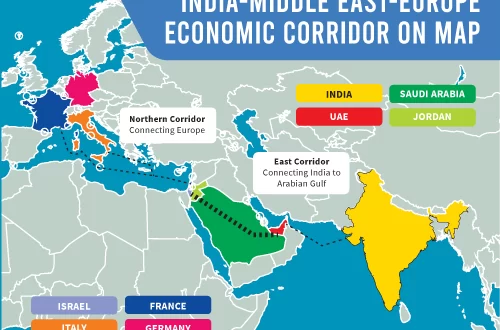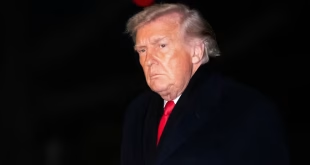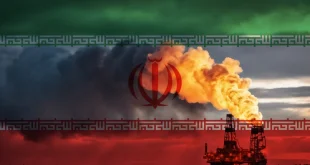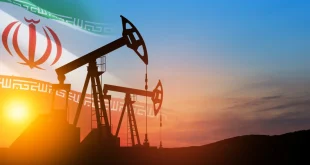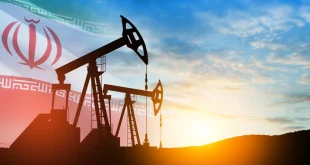Key Points
- Beyond just building infrastructure, the India-Middle East-Europe Economic Corridor (IMEC) project has significant geopolitical relevance and can transform world power relations amid a rising regional and global rivalry for transportation corridors.
- The IMEC project is a game-changer since it intends to boost connection, enable sustainable growth, and revolutionize connectivity by removing existing trade and investment restrictions.
- However, IMEC confronts various difficulties that might cause delays, such as shaky finances, costly infrastructure construction, geopolitical problems, and environmental issues.
- Initiatives like IMEC can play a crucial role in ensuring a sustainable energy future as the world struggles with the problems of climate change and the switch to renewable energy sources.
Beyond just building infrastructure, the India-Middle East-Europe Economic Corridor (IMEC) project has significant geopolitical relevance. It can transform world power relations amid a rising regional and global rivalry for transportation corridors. To reflect an evolving multipolar world, Saudi Arabia and the United Arab Emirates hope to turn their bilateral alliances with the United States, European Union, and India into multidimensional ones by participating in IMEC.
The project is anticipated to boost economic growth by strengthening regional connectivity, commerce, investment, innovation, logistics, and competitiveness, ultimately leading to sustained prosperity throughout the corridor. However, IMEC confronts various difficulties that might cause delays, such as shaky finances, costly infrastructure construction, geopolitical problems, and environmental issues.
A Game-Changer?
The IMEC project is a game-changer since it intends to boost connection, enable sustainable growth, and revolutionize connectivity by removing existing trade and investment restrictions. According to experts, the US and European decision-makers’ main geopolitical objectives are to oppose China. A new economic corridor linking India, the Middle East, and Europe is anticipated to result from this initiative, which might compete with China’s Belt and Road Initiative.
Global leaders, including US President Joe Biden, have praised the project as a “game-changing investment” and crucial to promoting commerce. The initiative might transform the global economic landscape and is anticipated to substantially influence the participating nations’ economic growth. The recently established cooperation under the IMEC stands out as a possible catalyst for bridging borders and integrating continents, which would be a significant boost for international trade.
IMEC and GCC
By investing in infrastructure construction, such as railroads and port lines, the IMEC initiative seeks to improve the flow of products and services. The IMEC has various benefits for the UAE and the GCC, chief among them being the promotion of economic growth through increased connectivity and economic integration between Asia, the Arabian Gulf, and Europe.
This effort would increase business and investment prospects by establishing direct economic relations between India and four Middle Eastern countries, including the UAE. The IMEC also aims to create “food parks” in India using eco-friendly techniques and advancing regional sustainable agriculture practices.
The UAE actively participated in the initiative by signing the Memorandum of Understanding (MoU). It highlighted its appreciation of the possibilities for economic integration and increased commerce with India, Europe, and other project partners. Additionally, the project’s focus on clean energy commerce is consistent with the UAE’s attempts at diversification and dedication to sustainable development.
The IMEC promotes economic transformation and positions the Gulf region at the center of geopolitical competition, which has implications for maritime security and regional defense integration. It also supports post-oil diversification and strengthens the UAE and Saudi Arabia’s positions in international trade.
China and IMEC
The IMEC project is often seen as a strategic response to growing concerns about the geopolitical implications of China’s expansive Belt and Road Initiative (BRI). Unlike the BRI, which has faced criticism for its debt reliance and perceived political influence, the IMEC project aims to present an alternative vision for connectivity and economic integration in the region.
By offering an alternative corridor and fostering collaboration among a diverse group of nations, the IMEC seeks to mitigate these concerns and provide a different approach to infrastructure development. Its comprehensive strategy includes:
- connecting vital commercial hubs,
- promoting clean energy development,
- advancing sustainable growth,
- potentially reshaping global trade routes,
- and creating new economic opportunities.
Despite being seen as a possible rival to the Belt and Road Initiative (BRI), it is significant to note that the IMEC initiative is not necessarily hostile to China. In addition to providing an alternate route for infrastructure growth and economic integration, it also represents a readiness to collaborate with other countries, reflecting the changing dynamics of geopolitics and connectivity projects.
Challenges
For the IMEC project and the PGII plan, geopolitical challenges and competition with China’s BRI pose formidable obstacles. To overcome possible conflicts and guarantee the project’s continuity, member governments’ complex web of issues and their disparate interests provide a daunting challenge. Quick conflict resolution processes and efficient communication channels are crucial to avoid delays or interruptions.
Several geopolitical challenges must be overcome to achieve the regional integration and economic growth goals of the IMEC project, including diversifying industry emphasis and getting large investments in infrastructure like roads, railroads, and ports. While complicated and multifaceted, the IMEC and PGII initiatives have the potential to alter regional and global dynamics. They distinguish themselves from the BRI by emphasizing the development of environmentally friendly and sustainable infrastructure, which addresses the environmental issues that have beset the latter.
The IMEC project is prepared to impact the power dynamics in the regions it passes through since it has a crucial place on the geopolitical chessboard. It can change and forge new alliances since it connects India, the Middle East, and Europe. It allows member countries to diversify their economic partnerships and lessen reliance on powerful international entities. This change in power relations may impact traditional alliances and alignments, leading to a rebalancing of influence.
IMEC’s focus on sustainability and clean energy is consistent with the worldwide trend toward environmentally friendly growth, which might help the participating countries’ soft power and reputation abroad. Even if the initiative is motivated by economic goals, its geopolitical effects are expected to go well beyond trade routes and infrastructure, reshaping the new power structure in a multipolar world.
Conclusion
The IMEC has the potential to transform the nature of international trade and transportation, ushering in a new era of connectedness and cooperation. It can encourage economic growth in the participating nations and areas outside of them by developing greater economic links and enhancing access to markets. Opportunities for firms to grow and diversify their operations will abound as new trade channels and markets open up. This can result in job creation, increased investment, and economic improvement.
Additionally, by promoting the creation and export of renewable energy resources, the IMEC initiative can improve energy security. Initiatives like IMEC can play a crucial role in ensuring a sustainable energy future as the world struggles with the problems of climate change and the switch to renewable energy sources. It can help lower carbon emissions and lessen the effects of global warming by building the infrastructure required to transfer clean energy across areas. The fight against climate change and realizing a more sustainable future for everybody align with the larger global objectives.

